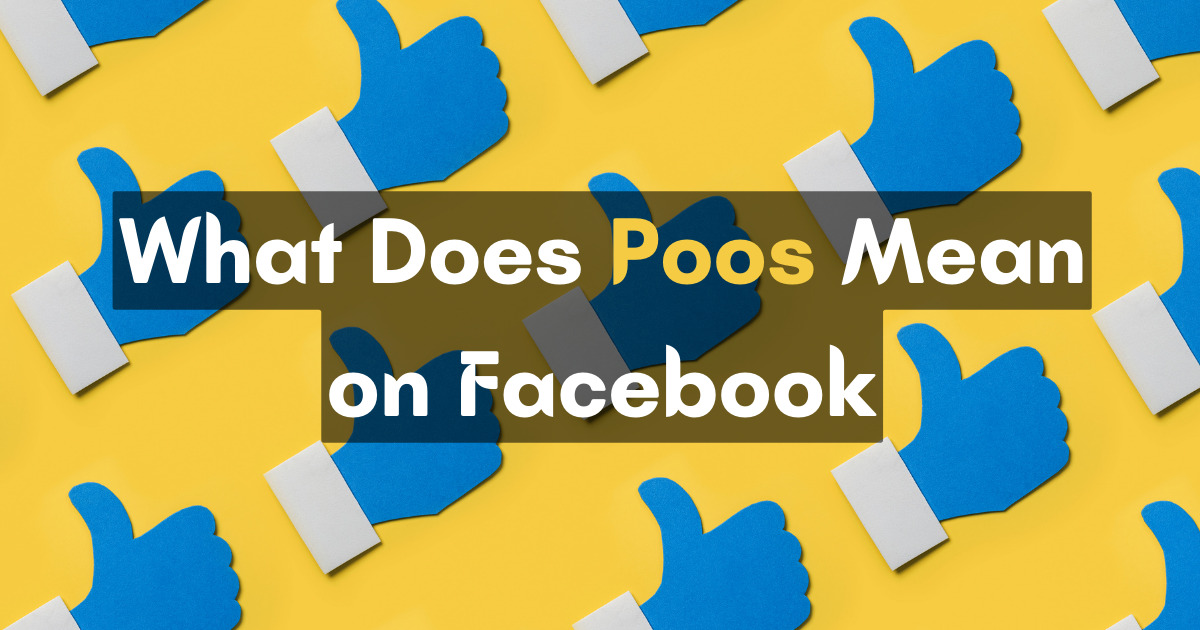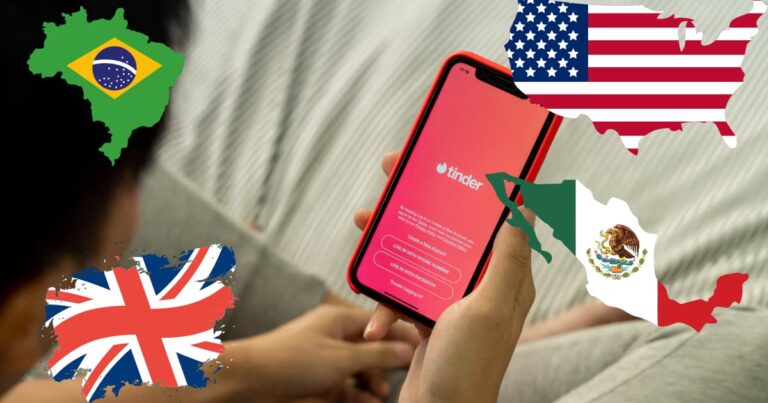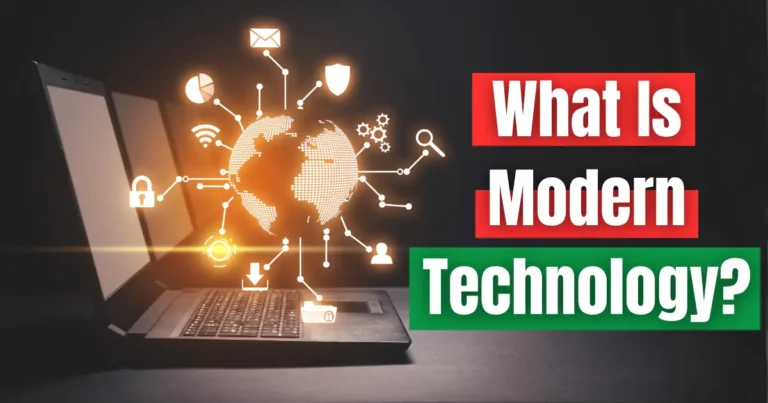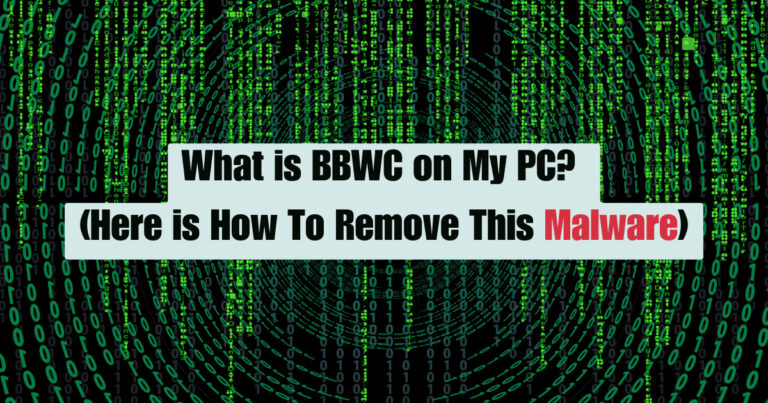What Does Poos Mean on Facebook? (Explained)

Have you ever come across the term “poos” on Facebook and wondered what it means? In this article, we will unravel the mystery behind this intriguing abbreviation used by sellers on Facebook Marketplace.
The use of “poos” on Facebook is not as unsavory as it may sound. In fact, it stands for “Pickup Only or Soon.” Sellers employ this term to indicate that the item they are selling can only be picked up locally and they are not open to shipping it to buyers.
It’s a convenient way for sellers to specify their preference for local pickup and avoid the hassle of packaging and shipping.
So, the next time you come across a listing with “poos” on Facebook Marketplace, you’ll know that it means the item is only available for pickup in the seller’s location.
This abbreviation streamlines the buying process and allows buyers to negotiate the pickup time with sellers. Furthermore, it helps sellers attract buyers who are specifically looking for local pickup options.
Knowing the Language of Facebook Marketplace
Facebook Marketplace is a bustling platform where users can buy and sell a wide range of items. Along with this vibrant marketplace comes its own set of language and abbreviations. It’s important to understand the jargon used by users to navigate Facebook Marketplace effectively. One such term is “poos,” which stands for “Pickup Only or Soon.”
Sellers use the abbreviation “poos” to indicate that the item they are selling can only be picked up locally and they are not open to shipping it. This term is different from “poms,” which means “Pickup Only, No Shipping.” By using “poos,” sellers can specify their preference for local pickup and avoid the hassle of packaging and shipping.
Buyers who are open to local pickup can negotiate the pickup time with the seller. Additionally, they can easily search for “poos” listings on Facebook Marketplace to find items that are available for local pickup.
Knowing the language of Facebook Marketplace, including the abbreviation “poos,” allows users to engage with the platform more effectively and make informed buying or selling decisions.
Common Abbreviations used on Facebook Marketplace
| Abbreviation | Meaning |
|---|---|
| POOS | Pickup Only or Soon |
| POMS | Pickup Only, No Shipping |
| NWT | New with Tags |
| EUC | Excellent Used Condition |
| ISO | In Search Of |
Context and Interpretations of “Poos” on Facebook
The “Poos” emoji on Facebook holds a hidden meaning that goes beyond a simple pile of poop. While it can represent humor or silliness in Facebook posts, its context and interpretations can vary.
Depending on the conversation or the relationship between people, the “Poos” emoji can be seen as a representation of humor, sarcasm, or even disdain. It is important to consider the context in which the emoji is used to understand its intended meaning.
When used in a lighthearted conversation among friends, the “Poos” emoji can be a playful way to add humor to a post or comment. It can convey a sense of silliness or goofiness, creating a light and casual atmosphere. However, when used in a more serious or contentious discussion, the “Poos” emoji can carry a different connotation.
It may be used as a subtle way to express sarcasm or to dismiss someone’s argument or opinion. In these situations, the emoji can symbolize a lack of respect or disdain for the other person’s point of view.
The cultural and regional differences in interpreting the “Poos” emoji add another layer of complexity to its meaning. What may be seen as funny or harmless in one culture or community can be offensive or disrespectful in another.
It is essential to be mindful of these variations and to use the “Poos” emoji with caution, considering its potential impact on others.
Influence of Internet Culture on “Poos” on Facebook
The rise of internet culture has had a significant impact on the way we communicate online, and this includes the use of memes and humorous content. The term “poos” on Facebook is a prime example of how internet culture has influenced our language and communication styles.
Originally stemming from meme culture, “poos” has evolved to become a catch-all term for various emotions or situations. It has become a way for users to express themselves in a humorous and relatable manner.
Memes, in particular, have played a crucial role in popularizing the use of terms like “poos” on Facebook. Memes, which are humorous images, videos, or text that spread rapidly through social media platforms, often serve as a form of cultural commentary or satire.
The term “poos” has become embedded in meme culture, where it is used to convey a range of emotions, from lightheartedness to sarcasm. This has influenced the broader internet culture and its use on platforms like Facebook.
Furthermore, the internet’s ability to connect people from around the world has contributed to the spread and adoption of internet language and memes. As users encounter and share content from different cultures and communities, they become exposed to new terms and expressions, including “poos.”
The widespread use of internet culture and memes has created a sense of shared understanding and humor, allowing individuals to connect with others on a deeper level, despite their geographical distances.
| Impact of Internet Culture on “Poos” on Facebook | Examples |
|---|---|
| Enhanced Communication | The use of “poos” allows for concise and relatable expression of emotions, fostering better communication and connection among users. |
| Community Building | Internet culture and the use of memes, including “poos,” create a sense of community and shared experiences among users. |
| Influence on Language | The adoption of terms like “poos” reflects the evolving nature of language and the influence of internet culture on our daily interactions. |
Power of Visual Language on Facebook
Visual language plays a significant role in communication on platforms like Facebook. It allows users to express complex emotions and ideas in a succinct and relatable way. One powerful element of visual language on Facebook is the use of emojis, including the infamous “Poos” emoji.
This comical representation of feces may seem lighthearted, but it has the ability to convey a wide range of emotions and add depth to online interactions.
Emojis like the “Poos” emoji have become a universal language on social media, transcending linguistic barriers. They provide a quick and intuitive way to express emotions that may be difficult to convey through text alone.
For example, a simple thumbs-up emoji can signify agreement or approval, while a crying face emoji can convey sadness or empathy. The “Poos” emoji, with its humorous and playful nature, can add a touch of levity to conversations or indicate a sarcastic tone.
By incorporating visual symbols like the “Poos” emoji into their messages, Facebook users can enhance the clarity and impact of their communication. Emojis create a visual context that helps convey the intended tone and emotion behind a message.
They allow individuals to connect on a deeper level, bridging the gap between text-based communication and face-to-face interaction.
Commonly Used Facebook Emojis and Their Meanings
| Emoji | Meaning |
|---|---|
| Laughter, humor | |
| ❤️ | Love, affection |
| Approval, agreement | |
| Happiness, contentment | |
| Sadness, sympathy | |
| Humor, sarcasm |
Socio-Cultural Significance of “Poos” on Facebook
Within online communities, the language used on social media platforms like Facebook holds significant socio-cultural meaning. This includes the use of emojis such as the “Poos” emoji.
Emojis are more than just simple pictographs, they serve as a form of communication that transcends traditional language barriers. In the case of the “Poos” emoji, its usage creates a sense of shared understanding and belonging among users.
By incorporating emojis like “Poos” into their online interactions, individuals can express themselves in unique and creative ways. These emojis become a mode of self-representation, allowing users to convey their emotions, thoughts, and perspectives.
In this sense, the use of emojis like “Poos” on Facebook becomes an essential element of social media language that defines and shapes online communities.
Emojis like “Poos” not only provide a visual representation of emotions but also facilitate a deeper connection and engagement among users. They create a common visual language that transcends cultural and linguistic boundaries.
This shared understanding fosters a sense of community and solidarity, enabling users to connect with like-minded individuals who share similar experiences and interests.
The socio-cultural significance of emojis like “Poos” on Facebook underscores the power of visual communication in shaping online interactions. As social media continues to evolve, it is crucial to recognize and embrace the language of emojis as an integral part of online communication.
Knowing and appreciating the diverse ways in which emojis contribute to the formation of online communities can enhance our digital experiences and foster meaningful connections.
Influence of Emojis on Online Communities
| Emojis | Social Media Language | Online Communities |
|---|---|---|
| Laughter and humor | Creating a lighthearted and positive atmosphere | |
| ❤️ | Love and affection | Expressing emotional connections and support |
| Excitement and enthusiasm | Generating hype and interest | |
| Celebration and joy | Marking milestones and achievements |
The table above showcases how emojis play a significant role in social media language and online communities. Each emoji represents a specific emotion or concept, contributing to the overall communication landscape on platforms like Facebook. These visual representations help foster connections, convey sentiments, and create a sense of community among users.
Impact of AI and Machine Learning
Another exciting trend in social media language is the integration of artificial intelligence (AI) and machine learning. These technologies have the ability to analyze data and predict patterns of communication, enabling platforms to provide personalized suggestions for emojis and even generate custom emojis based on individual preferences and usage.
In summary, the future of social media language is a dynamic one, constantly evolving to meet the needs and preferences of users. With the advancement of technology and the integration of AI, we can expect to see more diverse and inclusive emojis, as well as innovative forms of communication.
As we embrace these advancements, it is important to recognize the power and influence of social media language in shaping our online interactions and fostering meaningful connections.
The language used on Facebook, including terms like “poos,” is constantly evolving, reflecting the ever-changing nature of online communication. Embracing this linguistic evolution is essential for effective online interactions and understanding the diverse ways in which people connect on social media platforms.
When encountering terms like “poos” on Facebook, it’s important to remember that they can hold various meanings and interpretations. These terms add depth and nuance to online conversations, allowing individuals to express themselves uniquely and connect with like-minded people.
By staying open-minded and embracing the language of Facebook, we can navigate the ever-evolving landscape of online communication and foster meaningful connections.
So, the next time you come across “poos” or any other evolving language on Facebook, embrace it as an opportunity to engage with others and explore the rich tapestry of online interactions.






